Africa
Uganda deploys forces to South Sudan as civil war fears grow
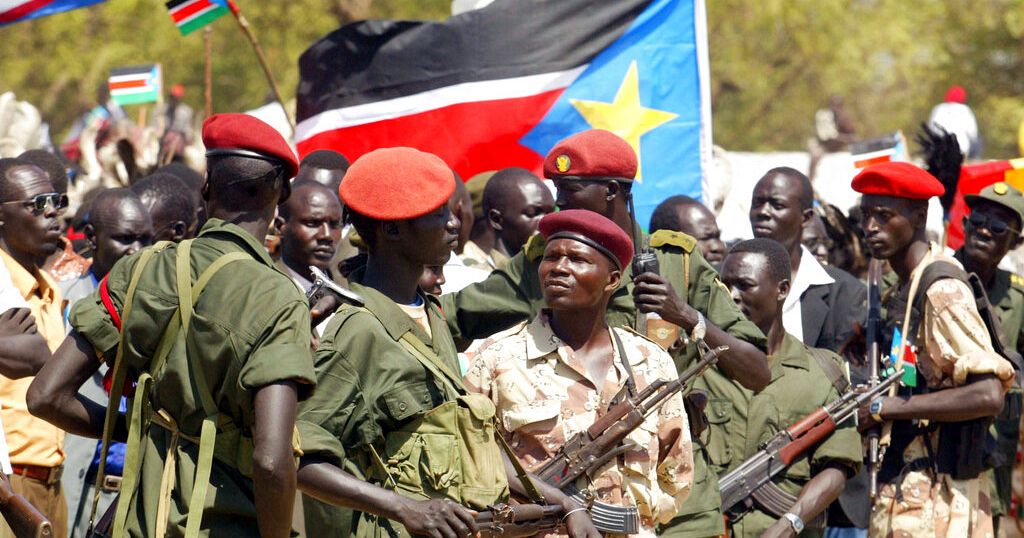
Uganda has deployed an unknown number of troops to South Sudan in a bid to protect the fragile government of President Salva Kiir as a tense rivalry with his deputy threatens a return to civil war in the east African nation.
Ugandan special forces have been deployed to Juba, the South Sudanese capital, “to support the government of South Sudan” against a possible rebel advance on the city, said Maj. Gen. Felix Kulayigye, a spokesperson for the Ugandan military.
“We sent a force there two days ago,” he said. “We are not there for peacekeeping.”
In deploying Ugandan soldiers to Juba, Ugandan President Yoweri Museveni moved as a guarantor of the peace process that keeps Kiir and Machar together in a delicate government of national unity, Kulayigye told The Associated Press Tuesday.
Kiir and Museveni are allies, and Museveni has in the past intervened in the South Sudan conflict to keep Kiir in power.
The deployment of Ugandan troops to South Sudan underscores rising tensions in the oil-producing country that has been plagued by political instability and violence since it gained independence from Sudan in 2011.
The U.S. on Sunday ordered nonemergency government personnel to leave Juba. The U.N. is warning of “an alarming regression that could erase years of hard-won progress” in South Sudan.
The latest tensions stem from fighting in the country’s north between government troops and a rebel militia, known as the White Army, that’s widely believed to be allied with Machar.
Last week a South Sudanese general was among several people killed when a United Nations helicopter on a mission to evacuate government troops from the town of Nasir, the scene of the fighting in Upper Nile state, was shot at. Earlier in the week, after the White Army overran the military garrison in Nasir, government troops surrounded Machar’s home in Juba and several of his allies were arrested. Deputy army chief Gen. Gabriel Duop Lam, who is seen as loyal to Machar, was among those detained.
Kiir had angered Machar’s group earlier in the year by firing officials seen as loyal to Machar, who has charged that “persistent violations through unilateral decisions and decrees threaten the very existence” of their peace pact.
Kiir urged calm after last week’s helicopter incident, saying in a statement that his government “will handle this crisis and we will remain steadfast in the path of peace.”
Civil war erupted in South Sudan in late 2013 when a rift between Kiir and Machar escalated into fighting along ethnic lines. Kiir, an ethnic Dinka, accused a group of soldiers loyal to Machar, an ethnic Nuer, of trying to take power by force.
Machar escaped Juba, and later rebels loyal to him came close to capturing Juba but were repulsed by a combined force of South Sudanese soldiers loyal to Kiir and Ugandan special forces.
More than 400,000 people were killed in the 5-year civil war that followed.
With the support of regional leaders and the international community, Kiir and Machar signed a peace deal in 2018 and Machar returned to Juba as South Sudan’s first vice president.
But the political rivalry between South Sudan’s top two leaders — with Kiir suspicious of his deputy’s ambitions and Machar calling Kiir a dictator — remains an obstacle to lasting peace. Both men have been accused of violating multiple ceasefires.
Kiir and Machar are under pressure from the U.S. and others to more quickly implement the 2018 peace deal and prepare for elections.
Challenges include the government’s failure to implement promised reforms such as completing the unification of the army command.
Presidential elections, repeatedly postponed, are now scheduled for 2026.
Africa
Unprecedented trial for apartheid atrocities opens in South Africa
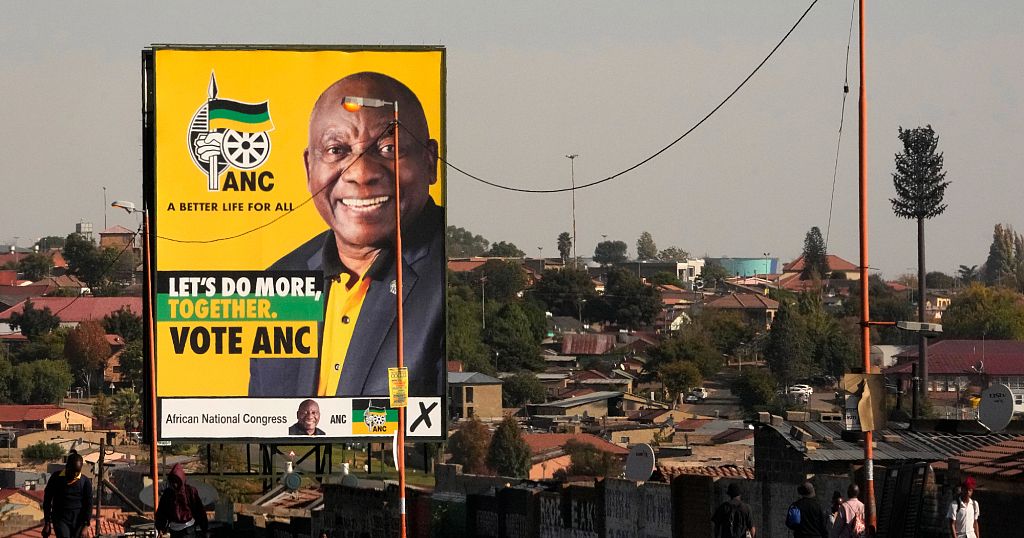
A significant step by South Africa’s legal system in confronting the atrocities of the country’s dark political past.
A judge this week approved the trial of two apartheid-era police officers for their involvement in the 1982 assassination of three student activists.
The prosecution is unprecedented. Until now, no individual had been held accountable for the crime of apartheid.
The case centers around three young freedome fighters killed in an explosion in 1982. The victims were part of a resistance movement opposed to the apartheid regime which enforced White-only rule and domination over the Black majority.
Experts say the trial could open the door for others.
Also this week, South Africa reopened an investigation into the death Albert Luthuli, a former president of the African National Congress (ANC) and Nobel Peace Prize laureate, who was killed in 1967.
The prosecuting authority seeks to have the findings of previous inquests into Luthuli overturned.
The authorities at the time had concluded that Luthuli’s death the result of an accident.
The development comes more than 30 years since South Africa became a democracy and after a Truth commission unearted numerous atrocities.
Africa
Tunisia jails opponents, critics of President Saied
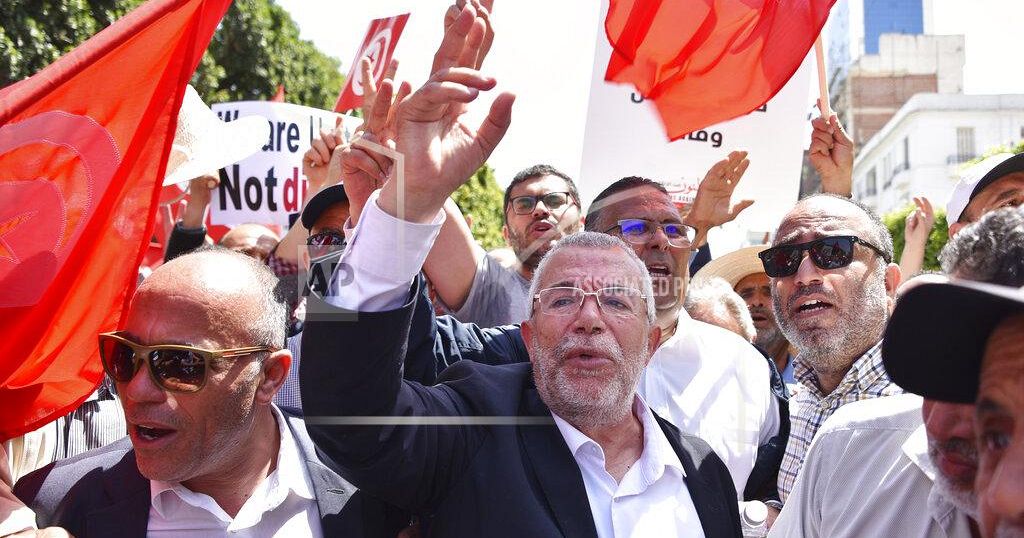
Tunisia on Friday handed opponents of President Kais Saied lengthy jail terms after convicting them of plotting against state security.
Issam Chebbi and Jawhar Ben Mbarek of the opposition National Salvation Front coalition, as well as lawyer Ridha Belhaj and activist Chaima Issa, were sentenced to 18 years behind bars, their lawyer said.
Businessman Kamel Eltaief received the harshest penalty of 66 years in prison.
They are among forty people, including high-profile politicians, businessmen and journalists, who who were being prosecuted on security and terrorism charges.
Critics say the charges lacked merit, and only served to consolidate Saied’s power grab.
The president won re-election virtually unchallenged last year after the jailing or disqualification on flimsy grounds of his opponents.
Saied has ruled mostly by decree since dismissing parliament in 2022 and promulgating a revised constitution giving himself wideranging powers in 2023.
Africa
Tanzania opposition says jailed leader not seen by family, lawyers
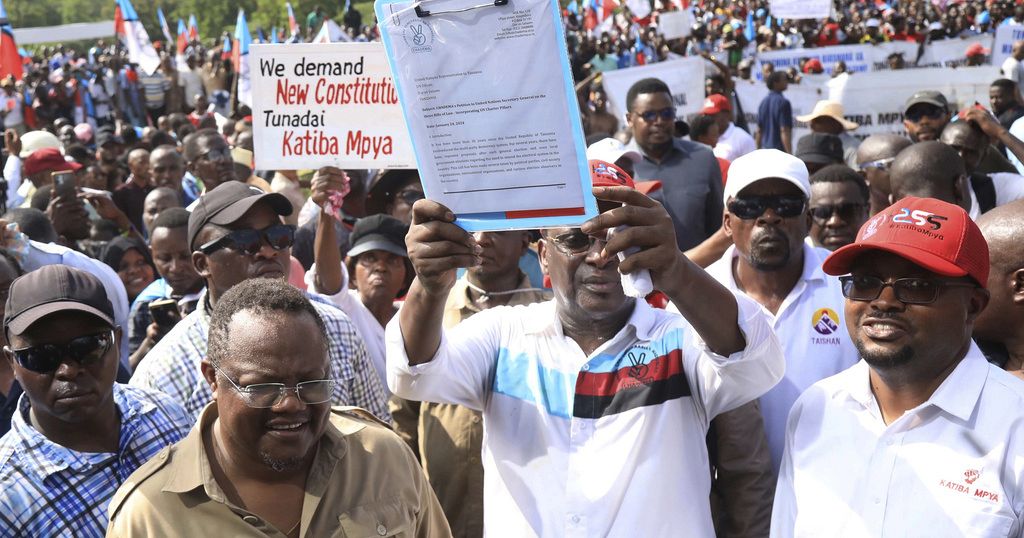
Tanzania’s main opposition party said it had failed to get access to its leader who is in detention on treason charges.
CHADEMA said Friday that the family and lawyers of Tundu Lissu had failed to see him at a Dar es salaam jail where he had been kept since his arrest on April 9.
In a statement, the party said it held the Tanzanian government and Prisons Service responsible ble for Lissu’s safety.
The Prisons Service quickly denied that Lissu had been moved from jail.
In a statement, the agency dismissed CHADEMA’s concerns as misinformation.
“We would like to inform the public that Tundu Lissu is safe and he is still detained at Keko Prison in Dar es Salaam according to the country’s laws and procedures,” the Service said in a statement.
Lissu came second in Tanzania’s 2020 presidential election. Last week, he was arrested and later charged with treason after a speech demanding election reforms.
Prosecutors said the speech called for an uprising.
With another presidential vote on the horizon, critics say President Samia Suluhu Hassan’s government has ramped repression against the opposition.
This week, the election commission banned CHADEMA from taking part in elections after the party refused to sign a document pledging to obey the commission’s orders.
-

 Education1 day ago
Education1 day agoHarvard’s battle with the Trump administration is creating a thorny financial situation
-

 Sports2 days ago
Sports2 days agoAaron Rodgers ‘not holding anybody hostage’ as he decides his future, retirement a possibility
-
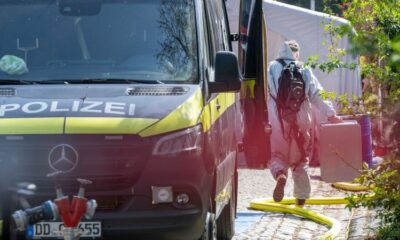
 Europe2 days ago
Europe2 days agoGerman police raid home of teenage boy suspected of making highly toxic warfare agent
-
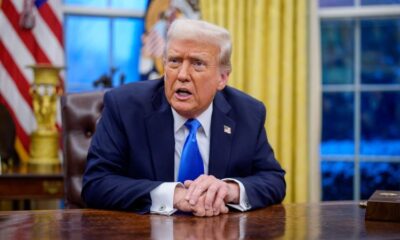
 Europe1 day ago
Europe1 day agoThe Trump administration says Europe is taking advantage of the US. That’s not exactly true
-
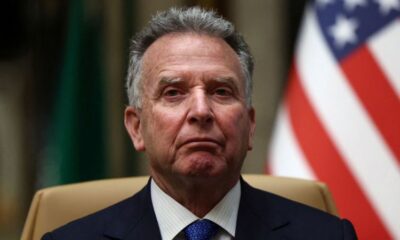
 Europe1 day ago
Europe1 day agoTrump’s ‘lone ranger’: How Steve Witkoff became the defacto point man on America’s foreign policy challenges
-

 Lifestyle1 day ago
Lifestyle1 day agoSweets from the sky! A helicopter marshmallow drop thrills kids in suburban Detroit
-

 Conflict Zones1 day ago
Conflict Zones1 day agoTrump says US may ‘pass’ on helping end war if Russia, Ukraine resist deal | Russia-Ukraine war News
-

 Sports2 days ago
Sports2 days agoManchester United pulls off ‘miracle’ Europa League victory against Lyon



